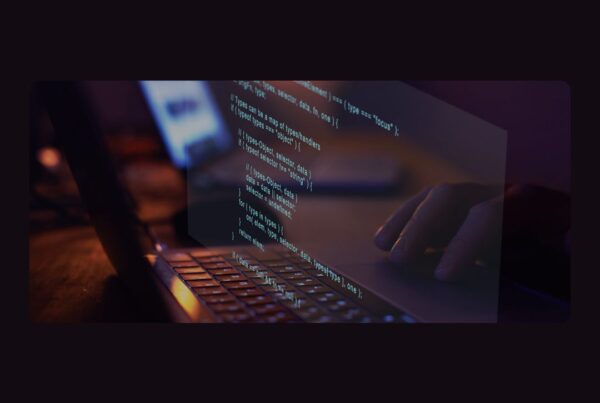Creating an Inclusive Interview Process
Over the last few months, I have spent time with a number of Senior HR professionals in the Life Sciences space who, like me, are passionate about DE&I and making our industry a place where everyone can succeed, thrive and be happy. We all agreed that huge advances have been made over recent years but there is still a long way to go and a lot of work to be done.
In a recent article we discussed the adjustments that employers should consider making to their job descriptions and job adverts to ensure that talented Neurodiverse candidates are encouraged to apply. However once an application has been made it is critical that the interview process is designed appropriately to assess the suitability of all potential candidates.
Many recruitment processes ask candidates to disclose whether they have a disability or are neurodivergent in advance, but this is the thing: disclosure doesn’t always come with an explanation and often comes with a stigma. Many candidates might not feel comfortable elaborating, and as a result, hiring managers are left unaware of the support or reasonable adjustments these individuals might need to thrive.
What if, instead of asking or waiting for candidates to disclose their needs, employers proactively created an environment where neurodiverse candidates could feel comfortable being themselves? It’s not about checking a box, it’s about personalising the experience, making sure every candidate, regardless of if they are neurotypical or neurodiverse, can perform to their full potential.
Stigma still exists, and it often silences people who might need accommodations like noise-cancelling headphones or a quiet workspace. But here’s where employers can change the narrative: by offering these kinds of adjustments upfront, you’re saying, we see you, and we welcome you.
It got me thinking about what changes we could make to the interview process to ensure it’s inclusive for neurodiverse candidates. Here’s what stood out:
Provide Interview Information in Advance
- Share detailed information about the interview process, including the format, expected questions, and any assessments that will be conducted.
- Provide an agenda or schedule: Let candidates know the exact structure of the interview (e.g. who they will meet, topics covered, breaks, etc.)
- Time to prepare: Giving candidates more time to prepare can help them present their best selves.
Offer Flexible Communication Formats
- Some neurodiverse individuals may find it easier to express themselves through writing rather than verbally, therefore offering the option to answer questions via email or written format might help?
- During the interview, ensure that questions are clear, concise, and specific and allow candidates to ask for clarification if needed.
- For candidates who benefit from visual information, share slides or diagrams when explaining complex topics.
Adjust the Interview Environment
- Reduce sensory distractions like bright lights, background noise, or crowded spaces that may be overstimulating nor neurodiverse candidates
- Some candidates might prefer remote interviews to avoid sensory challenges associated with traveling to a location.
- Allow candidates to choose interview times that suit their peak focus and comfort levels.
Modify the Interview Structure
- Instead of relying solely on traditional Q&A formats, allow candidates to demonstrate their skills through practical tasks or job simulations that reflect the work they would be doing.
- Long, uninterrupted interviews can be overwhelming, try offering regular breaks to reduce stress and allow candidates to regroup their thoughts
- Consider splitting the interview into shorter sessions spread over multiple days, allowing candidates more time to process information and recover.
Focus on Strengths Rather Than Social Cues
- Some neurodiverse candidates may struggle with eye contact, tone, or facial expressions, interviewers should focus on the content of the candidate’s responses rather than traditional social cues and norms.
- Avoid open-ended or vague questions, ensure you are asking more specific, direct questions which can help candidates provide clearer answers.
- Some candidates may need more time to process and answer questions, be patient and offer time for thoughtful responses without rushing.
Train Interviewers on Neurodiversity
- Ensure that interviewers are aware of neurodiverse conditions (e.g. autism, ADHD, dyslexia) and how these may affect communication and behaviour during an interview.
- Reduce unconscious bias by focusing interviewers on the candidate’s ability to perform the job rather than how they come across socially.
Post-Interview Feedback and Follow-up
- Neurodiverse candidates might benefit from receiving clear, constructive written feedback after the interview.
- Allow candidates to ask follow-up questions after the interview, especially if they needed time to reflect on their performance.
Interviewing neurodiverse candidates isn’t about ticking off a checklist of dos and don’ts. It’s about creating an environment where they can genuinely thrive. It’s about being patient, asking the right questions, and yes, gently redirecting when necessary. Sometimes, it’s as simple as saying, “Thanks for sharing that, I’d like to ask you the next question now.”
When we shift our focus to understanding a candidate’s unique strengths and how they fit the role, we open doors for true diversity. And isn’t that what hiring should be all about?
Conclusion
Creating an inclusive and supportive interview process for neurodiverse candidates requires more than just surface-level adjustments, it calls for a fundamental shift in how we approach recruitment. By proactively offering accommodations, being mindful of communication styles, and focusing on a candidate’s strengths rather than traditional social cues, employers can build an environment where all candidates, neurotypical and neurodiverse alike, feel empowered to perform at their best. The goal isn’t just to attract diverse talent; it’s to ensure they can thrive once they enter the workplace. As the life sciences industry continues to evolve, embracing neurodiversity in recruitment is not just the right thing to do, it’s a strategic move that will lead to more innovative, inclusive, and successful teams. Now is the time to reimagine how we interview, assess, and support all candidates, ensuring that everyone has a fair chance to succeed.




